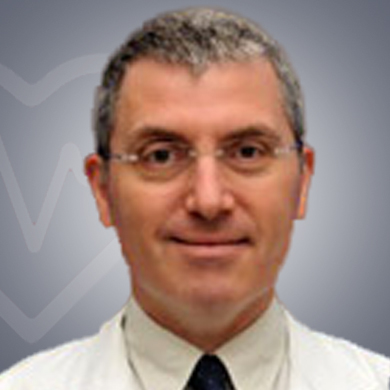
36 Years of experience
Speaks: English
Some of the conditions treated by opthalmologist Dr David Varssano include:
An ophthalmologist treats diabetic retinopathy based on several factors, such as the severity of the condition and response to previous treatments. Some effective treatment methods include laser treatment, injections, and eye surgery. The doctor might prescribe some antibiotics for bacterial conjunctivitis. Antibiotics might help lessen the length of infection.
Some of the signs and symptoms of different types of eye diseases are as follows:
The above signs and symptoms suggest that you need to see an eye specialist. Having serious eye problems on time can help you restore your vision. Sometimes, non-vision eye problems may be treated to keep the eyes comfortable and the eyesight sharp. It is important to go for routine eye examinations to diagnose the condition.
Dr David Varssano is available for consultation between 10 am and 5 pm. The average working hours of the doctor are 47 hours a week.
Ophthalmologist David Varssano has performed a wide range of procedures. Some of the popular procedures performed by the doctor include:
LASIK (laser-assisted in situ keratomileusis) is the most common procedure performed to treat myopia, hyperopia, and astigmatism. Like other types of eye surgery, LASIK reshapes the front surface of the eye to allow light entering into the eye to focus clearly on the retina without the use of glasses or contact lenses.

Share Your Experience about Dr. David Varssano

An ophthalmologist is a medical doctor who is trained in vision and eye care. Ophthalmologists are different from optometrists and opticians because of their different levels of training and the conditions they diagnose and treat. Some ophthalmologists work closely with other medical experts to provide care for chronic eye conditions. If you have an eye problem such as cataracts or any other conditions that would require surgical treatment, an ophthalmologist is a suitable doctor to address your problem. Though an ophthalmologist generally treats eye-related problems, they may also offer consultation for conditions that are not linked to the eyes. They also take part in scientific research to find new treatment methods.
Some of the most common test performed for the diagnosis of eye conditions are:
An opthalmologist may perform a number of different tests to evaluate your vision and diseases. Each test will evaluate some specific aspect of vision. The doctor may direct a beam of light in your eyes to look for any abnormalities in the retina. They design the treatment plan posts after evaluating the test reports.
Some of the signs you need to visit an ophthalmologist include:
The above-listed signs and symptoms signal that you need to consult an eye specialist who will diagnose the condition and start suitable treatment. They may tell you to undergo a number of eye tests to diagnose the condition. They also talk to other specialists about your condition and will start the best treatment.